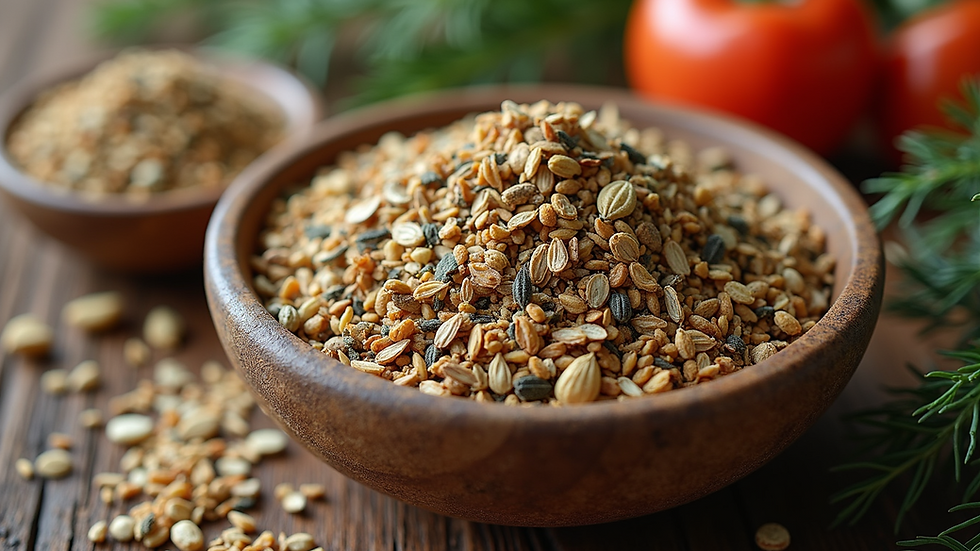Unlocking the Power of Tea Antioxidants
- Cheryl Whitehead
- Sep 29, 2025
- 3 min read
Tea has been cherished for centuries, not only for its comforting flavors but also for its remarkable health properties. Among these, the antioxidants found in tea stand out as powerful agents that can promote well-being and protect the body from various ailments. This article delves into the health benefits of tea, focusing on the role of antioxidants, and offers practical insights on how to incorporate tea into your daily routine for maximum advantage.
Understanding the Health Benefits of Tea
Tea is more than just a soothing beverage; it is a complex infusion packed with bioactive compounds. The most notable among these are antioxidants, which help neutralize harmful free radicals in the body. Free radicals are unstable molecules that can cause oxidative stress, leading to cell damage and contributing to chronic diseases such as heart disease, cancer, and aging.
There are several types of tea, including green, black, white, and oolong, each with unique antioxidant profiles. Green tea, for example, is rich in catechins, a type of antioxidant known for its potent health effects. Black tea contains theaflavins and thearubigins, which also exhibit antioxidant activity but differ chemically from those in green tea.
Key health benefits of tea include:
Improved heart health: Regular tea consumption has been linked to lower blood pressure and reduced risk of cardiovascular disease.
Enhanced brain function: Antioxidants in tea may protect brain cells and improve cognitive function.
Weight management: Some studies suggest that tea can boost metabolism and aid in fat burning.
Cancer prevention: Certain antioxidants in tea may help inhibit the growth of cancer cells.
Better digestion: Tea can support gut health and reduce inflammation.
How Antioxidants in Tea Work
Antioxidants are molecules that prevent oxidative damage by donating electrons to free radicals, stabilizing them and stopping the chain reaction of cellular damage. The antioxidants in tea, such as polyphenols, flavonoids, and catechins, are especially effective because they can cross cell membranes and reach various tissues.
One of the most studied antioxidants in tea is epigallocatechin gallate (EGCG), predominantly found in green tea. EGCG has been shown to:
Reduce inflammation
Protect against heart disease by improving cholesterol levels
Support immune function
Inhibit the growth of certain bacteria and viruses
Drinking tea regularly can increase your body's antioxidant capacity, helping to combat oxidative stress and reduce the risk of chronic diseases.
Brewing the Perfect Cup for Maximum Antioxidants
To unlock the full potential of tea antioxidants, the brewing method is crucial. Here are some tips to maximize the antioxidant content in your cup:
Use fresh, high-quality tea leaves: Loose leaf tea generally contains more antioxidants than tea bags.
Control water temperature: Green tea should be brewed at around 175°F (80°C) to preserve delicate antioxidants, while black tea can handle boiling water.
Steep for the right time: Typically, 2-3 minutes for green tea and 3-5 minutes for black tea. Oversteeping can cause bitterness and degrade antioxidants.
Avoid adding milk: Some studies suggest that milk proteins may bind to antioxidants, reducing their effectiveness.
Drink it fresh: Antioxidants can degrade over time, so consume your tea soon after brewing.
By following these simple steps, you can enjoy a flavorful cup that delivers the maximum health benefits.
Incorporating Tea into Your Daily Routine
Making tea a regular part of your day is easy and rewarding. Here are some practical ways to enjoy tea and antioxidants:
Morning boost: Replace your morning coffee with a cup of green or black tea for a gentler caffeine lift and antioxidant boost.
Midday refreshment: Use tea as a hydrating, low-calorie alternative to sugary drinks.
Post-meal aid: Sip on a cup of oolong or white tea to support digestion.
Evening relaxation: Herbal teas like chamomile or rooibos (though lower in antioxidants) can help you unwind without caffeine.
For those interested in exploring more about tea and antioxidants, there are many resources and specialty teas available that focus on maximizing these healthful compounds.
Beyond Antioxidants: Additional Health Perks of Tea
While antioxidants are a major reason to drink tea, there are other benefits worth noting:
Hydration: Tea contributes to your daily fluid intake, keeping you hydrated.
Mental clarity: The amino acid L-theanine in tea promotes relaxation without drowsiness, improving focus.
Bone health: Some studies suggest tea may help maintain bone density.
Oral health: Tea contains fluoride and antibacterial properties that can reduce plaque and cavities.
By choosing a variety of teas and enjoying them regularly, you can tap into a broad spectrum of health advantages.
Unlocking the power of tea antioxidants is a simple yet effective way to enhance your health. Whether you prefer green, black, or oolong, each cup offers a unique blend of compounds that support your body in multiple ways. Start brewing today and experience the natural benefits that tea has to offer.




Comments